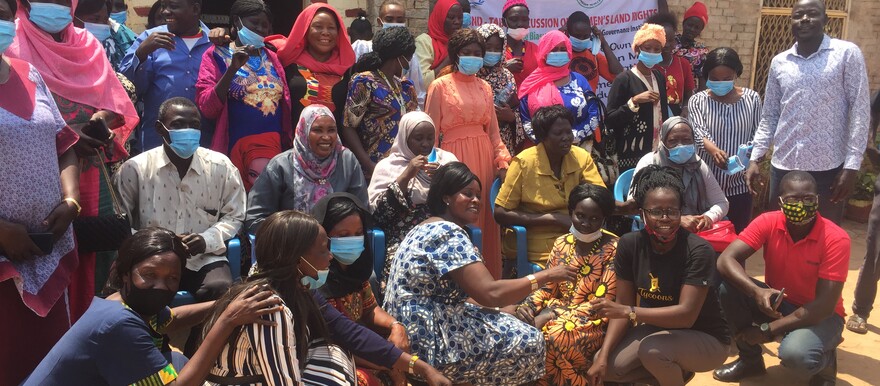Women in South Sudan’s Western Bahr el Ghazal State are demanding leadership roles that will allow them to execute land rights for women.
The call was made as the women celebrated International Women’s Day at a roundtable discussion organized by the Alliance for Land Rights South Sudan in Wau town on Tuesday.
Speaking to Radio Tamazuj, participants at the roundtable said a lack of female representation at the state ministry of housing, land, and utilities bars them from accessing their land rights.
“There are some positions that are not given to us though we have the capacity of leading, these are such as administration of land. No woman even as director-general in the ministry. We need a woman to be there in such positions so that they can understand issues facing women,” Catharine Edward, one of the participants said.
According to Catherine, many women lose their plots of land due to the absence of female representatives in the ministry.
“If there is a woman in the administration and also there is a woman who is likely to lose her land right, the woman in the administration will not let down her colleague,” she alleged.
Catherine also pointed out that women should also be appointed as chiefs to protect women’s land rights.
Another participant, Fatna Mahamud Hasier, a member of the state women association also echoed the challenges women face.
“We are facing a lot of issues. To get a plot is difficult and you only find that men are the ones owning large plots,” Fatna said.
Chief Naserdin Rajab, who was also at the roundtable discussion, said women have a right to own land just like men.
“People across the world are remembering women today. I cannot say that it is a man only to own land but also a woman has the right to access land and register and get a title,” she said. “I am calling on women today to stand for your right to have a position in the ministry, directors, and all the government institutions and become the heads.”
The roundtable provided a platform for the participants to dialogue on land ownership issues and the organizations’ role in assisting women to resolve land disputes.




